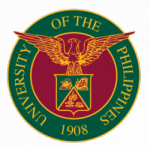The Summer Institute in the Natural Sciences and Mathematics (SINSM) is an annual extension service of the College of Science that seeks to offer venues in which educators in the sciences and mathematics in the Cordillera region, as well as nearby areas, are updated on current scientific issues. Since 1990, the SINSM has trained and updated secondary and tertiary teachers on the latest developments in theory, applications and pedagogy. It has also provided refresher courses in the basic concepts in the fields of biology, mathematics, computer science, physics, chemistry, and geology.
Category: Science and Technology
This training course orients laboratory personnel from various sectors on the significance of microorganisms used as quality indicators and foodborne pathogens in public health, and their impact on the microbiological safety of foods. It also trains laboratory personnel in the principles and procedures for the following test methods: (a) Aerobic Plate Count (APC); (b) Coliform count and E. coli detection; and (c) Yeast and Mold Count and Salmonella detection.
This course orients the technical personnel of the Mines and Geosciences Bureau (MGB) on basic microbiology and the relevance of microorganisms in the biosphere and the fields of geology and mining. It also trains MGB technical personnel in basic microbiological techniques relevant to mining operations.
These courses seek to address the specific training needs of chemical laboratories in government agencies and private institutions.
These technical advice, information and expertise are provided in support of the scientific studies of students from secondary and tertiary educational institutions, the functions of government and research institutions and quality assurance and research and development programs of the industry.
This course trains testing laboratory personnel on the development and application of microbial inoculum for wastewater processing.
This service provides microbiological services that will generate data, information and test results pertinent to the requirements of customers. This include the completion of theses or dissertations, projects, and other research activities, the conformance of products to specific microbiological standards, the implementation of quality assurance or control programs, the implementation of research and development programs, as well as other relevant industrial applications.
This course provides training services to the staff of chemical laboratories of government agencies and private institutions in their efforts to comply with the requirements of ISO 17025 accreditation.
This course orients laboratory personnel and microbiologists from regulatory agencies and water providers on the significance and impact of fecal bacteria in relation to the microbiological quality and safety of drinking water.
These consultations aim to provide quality and reliable DNA testing services by highly skilled and qualified DNA analysts. These analysts follow local and international guidelines, and are recognized by Philippine courts.

